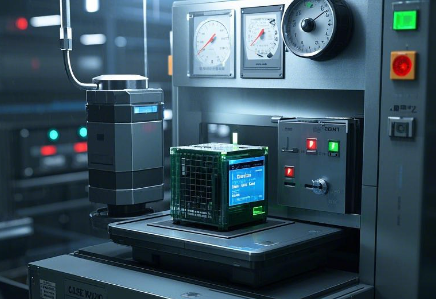How Precision Manufacturing Techniques are Reshaping Compact Computing Modules
lead to the creation of more advanced and high - performance computing components.
For example, the development of new photoresist materials with improved sensitivity and resolution could enhance the performance of photolithography. In the area of nanoprinting, the use of self - assembly techniques to create nanostructures could simplify the manufacturing process and reduce costs. In 3D printing, the development of new materials with better electrical conductivity and thermal properties could open up new possibilities for the integration of 3D - printed components into compact computing modules.
B. Integration of New Technologies
The future will also see the integration of new technologies with precision manufacturing techniques to further enhance the performance of compact computing modules. For instance, the combination of precision manufacturing with emerging technologies such as quantum computing and neuromorphic computing could lead to the development of revolutionary computing architectures.
In quantum computing, precision manufacturing techniques will be crucial for the fabrication of qubits, which are the basic units of quantum information. The precise control over the manufacturing process will be necessary to ensure the stability and coherence of the qubits. In neuromorphic computing, which aims to mimic the structure and function of the human brain, precision manufacturing can be used to create neural network - like structures with high - density connections. This integration of new technologies with precision manufacturing has the potential to transform the field of computing and open up new applications in areas such as artificial intelligence, data analytics, and cryptography.

C. Industry - Wide Adoption
As the cost of precision manufacturing techniques decreases and the technical challenges are overcome, there is expected to be wider industry - wide adoption of these techniques in the production of compact computing modules. This will lead to the availability of more advanced and affordable computing devices for consumers and businesses alike.
In the consumer electronics market, the use of precision - manufactured compact computing modules will result in smartphones, tablets, and laptops with better performance, longer battery life, and smaller form factors. In the industrial sector, precision - manufactured computing modules will enable the development of more intelligent and efficient industrial control systems, robotics, and IoT devices. The widespread adoption of precision manufacturing techniques in the production of compact computing modules will have a significant impact on various industries and contribute to the overall growth and development of the technology ecosystem.
In conclusion, precision manufacturing techniques are playing a vital role in reshaping compact computing modules. Through miniaturization, performance enhancement, and improved reliability, these techniques are enabling the creation of more advanced and powerful computing components. However, challenges such as cost, technical complexity, and scalability need to be addressed. With continued technological advancements, the integration of new technologies, and wider industry - wide adoption, precision manufacturing techniques are set to drive the next wave of innovation in the field of compact computing modules, opening up new possibilities for the future of computing.




